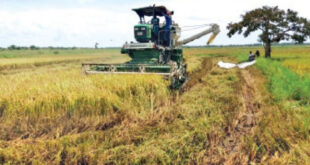As winter looms, Syrians who have fled their homes have much to worry about.
October brought the defeat of ISIS in Raqqa, and the military campaign to retake that city displaced many thousands of people from their homes. Many have fled to camps in other parts of Syria, camps that were already overflowing after years of civil war and fighting in other cities.
And winter is the cruelest season for the refugees. “Last year as people fled Aleppo, it was heartbreaking to see families suffering in appalling conditions in the snow,” says Wynn Flaten, director of World Vision’s Syria response.
NPR asked Flaten and Wouter Schaap, CARE‘s country director for Syria, separately about the situation on the ground. These are two of the humanitarian groups working to help the civilians.
Here are excerpts from their interviews.
Interview Highlights
Give me a sense of the numbers. How many internally displaced people are there in Syria today?
Wouter Schaap: At the moment, we have almost 6.5 million people who are displaced internally within Syria and over 5 million that have fled the country into neighboring countries and beyond. So it’s a very large proportion of the population, and many people have been displaced multiple times. So they move from one location to another, hoping to find safety, and then are moved on again. This constant uprooting has a devastating physical and emotional toll
What worries you most about the situation in Syria?
Schaap: I think the sheer scale of it — and the complexity of it. It’s a war that has become a global war with major powers getting very heavily involved over the last couple of years. And with that level of complexity — regional players, global players all getting involved — it becomes a very difficult conflict to resolve. And people’s coping capacity sort of, seven years into this crisis, is being eroded.
And what also worries us as an organization is that this may spread regionally. We’re seeing more instability in Iraq in this recent period. And we all hope that this conflict can be resolved through talks peacefully, but unfortunately at the moment the signs on the ground are not positive.
What concerns you most heading into winter?
Wynn Flaten: With temperatures dropping, we can expect to see an increase in respiratory diseases, especially among children and older people. We’ll be helping to supply fuel and heaters. Rain is also likely to damage personal belongings for many people when areas become flooded, meaning they’ll need new mattresses and blankets to stay warm. Many people are living in dire conditions in the countryside, which is a particular worry as winter approaches. Last year, as people fled Aleppo, it was heartbreaking to see families suffering in appalling conditions in the snow. Many people have to leave all their belongings behind and arrive in a new place with nothing but the clothes on their backs. There’s no denying the conditions become terrible each year as temperatures plummet.
I’ve heard that the crisis is especially hard for women and children. Why?
Flaten: It’s always children who bear the brunt of conflict. They’ve had absolutely nothing to do with the war but are the most vulnerable and suffer the most. It’s not just the immediate impact; children have lost years of education, which will have an effect on their futures, and for the future of Syria as a whole. For women, who may be single mothers if their husbands have died, it can be a difficult environment.
Can you talk a bit more about the mental toll this conflict is taking?
Flaten: Children have faced seemingly endless misery. Violence, heartache and uncertainty are all that many have ever known. Of course, years of being exposed to this environment can affect mental health.
How is support at this moment? It is diminishing due to the length of the conflict?
Flaten: The level of concern and interest from the public still seems remarkable to us here in the region, so many years into the conflict, and this is encouraging. But each year of the war is more violent than the last, and funding is reducing.
Is there a particular family you’ve met whose story stays with you?
Schaap: There’s a family I met in Jordan that had fled from Syria …. The father wouldn’t leave the house anymore because he just struggled with all the memories of what he’d seen and loss of family members inside Syria. Another example is a story of a lady with three young children inside southern Syria at the moment. And she saw several of her [family] members being executed by one of the warring parties.
So these are sort of normal stories in the Syria context.
Source: https://muslimvillage.com
Post Disclaimer | Support Us
Support Us
The sailanmuslim.com web site entirely supported by individual donors and well wishers. If you regularly visit this site and wish to show your appreciation, or if you wish to see further development of sailanmuslim.com, please donate us
IMPORTANT : All content hosted on sailanmuslim.com is solely for non-commercial purposes and with the permission of original copyright holders. Any other use of the hosted content, such as for financial gain, requires express approval from the copyright owners.
 Sri lanka Muslims Web Portal Sri Lanka Muslims News Center
Sri lanka Muslims Web Portal Sri Lanka Muslims News Center
 Donate
Donate


